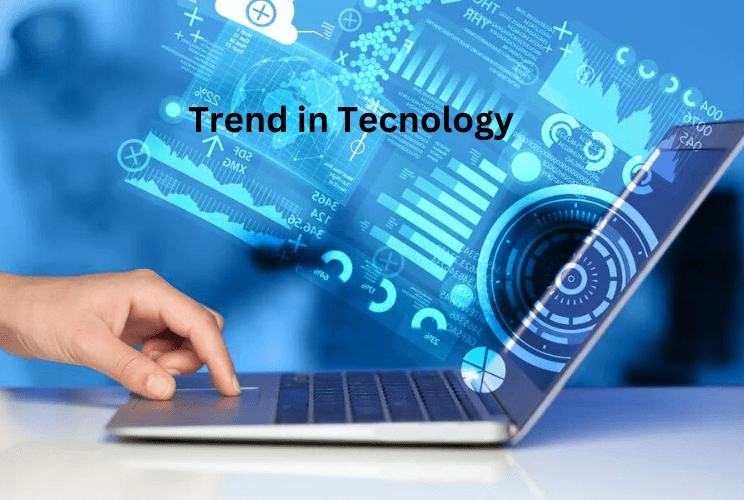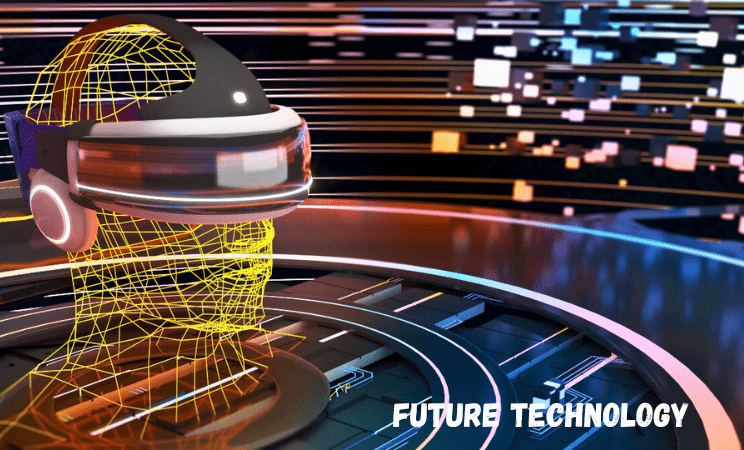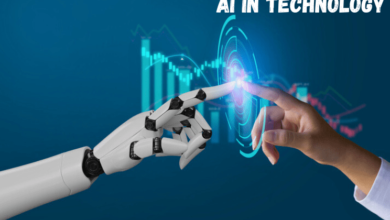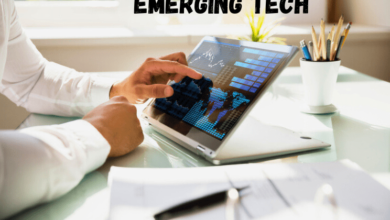Trends in Technology: A Glimpse into the Future

Trends in Technology has become an integral part of our daily lives due to its rapid evolution. In just a few decades, we have witnessed the transformation of the world through innovations in computing, communication, and various other fields. As we venture further into the 21st century, the pace of technological advancement shows no signs of slowing down. This article will take you on a journey through the latest technology trends, offering a glimpse into the exciting and transformative developments that are shaping our future.
Artificial Intelligence (AI)
AI continues to be a leading force in shaping the future of Trends in Technology. Machine learning algorithms are becoming increasingly sophisticated, enabling computers to perform tasks that were once thought to be exclusive to human intelligence. From autonomous vehicles to voice assistants, AI is finding its way into every corner of our lives. In healthcare, AI is revolutionizing diagnostics and treatment options. AI-driven chatbots are enhancing customer service and reducing costs for businesses. With the growing availability of data and computing power, we can expect AI to create even more groundbreaking solutions in the coming years.
5G Technology
The rollout of 5G networks is set to revolutionize how we connect and communicate. With faster speeds, lower latency, and increased capacity, 5G will open up new possibilities for industries such as augmented reality (AR), virtual reality (VR), and the Internet of Things (IoT). These technologies will become more practical and widespread as 5G becomes the new standard. Expect to see innovations in remote surgery, immersive entertainment, and smart cities as 5G networks proliferate.
Quantum Computing
Quantum computing, once the stuff of science fiction, is now a reality. Companies like IBM, Google, and others are making significant progress in building quantum computers with the potential to outperform classical computers in certain applications. Many fields, such as cryptography, drug discovery, and optimization problems, could be revolutionized by quantum computing. While it is still in its early stages, the power of quantum computing is a glimpse into the future’s limitless potential.
Blockchain and Cryptocurrency
Blockchain, the technology behind cryptocurrencies like Bitcoin and Ethereum, is transforming the way we conduct financial transactions and manage data. Its decentralized and immutable nature offers unparalleled security and transparency. Beyond cryptocurrencies, blockchain has applications in supply chain management, voting systems, and even intellectual property protection. The rise of non-fungible tokens (NFTs) is just one example of how blockchain Trends in technology is reshaping the art and entertainment industries.
Internet of Things (IoT)
The IoT is a network of interconnected devices, from smart thermostats and wearables to industrial sensors. These devices collect and share data, allowing for greater automation and efficiency. As the IoT continues to grow, we can anticipate advancements in smart homes, agriculture, healthcare, and transportation. It also presents new challenges in terms of data security and privacy, which will be addressed by evolving technologies and regulations.
Biotechnology and Genetic Engineering
Advancements in biotechnology are poised to revolutionize healthcare and the way we understand and manipulate our biology. The CRISPR-Cas9 gene-editing technology has made it possible to edit DNA with a precision never before achieved. This holds immense promise for treating genetic diseases, but it also raises important ethical and moral questions. In the near future, we may see designer babies, custom medicines, and radical extensions of the human lifespan.
Renewable Energy and Sustainability
As the world grapples with climate change, renewable energy sources are taking center stage. Solar, wind, and hydroelectric power are becoming increasingly cost-effective and scalable, driving the transition away from fossil fuels. Energy storage technologies, like advanced batteries, are helping to make renewable energy sources more reliable and efficient. Sustainability is not only a societal imperative but also a driving force behind technological innovation.
Space Exploration and Colonization
The exploration of outer space has captured the imagination of humanity for centuries. Recent developments by private companies, such as SpaceX and Blue Origin, have rekindled our interest in space. The potential for lunar and Martian colonization is no longer a distant dream. As space travel becomes more accessible, we may witness the emergence of new industries, space tourism, and a deeper understanding of the universe.
Cybersecurity
As technology advances, cybersecurity’s importance cannot be overstated. With more of our lives and infrastructure connected to the digital realm, the risks of cyberattacks are higher than ever. The field of cybersecurity is evolving to combat increasingly sophisticated threats. AI and machine learning are being used to detect and respond to attacks in real time, while quantum-resistant encryption is being developed to protect our data in the age of quantum computing.
Augmented and Virtual Reality
Augmented reality (AR) and virtual reality (VR) are changing how we interact with digital information and the physical world. AR overlays digital information onto our surroundings, while VR immerses us in entirely digital environments. These technologies have uses in remote collaboration, education, healthcare, and gaming.As the hardware and software supporting AR and VR become more sophisticated and affordable, we can expect these technologies to become even more integrated into our daily lives.
Conclusion
The technological landscape is in a perpetual state of evolution, and the trends we’ve explored here provide a glimpse into a future brimming with promise and innovation. Artificial Intelligence is becoming increasingly sophisticated, transforming industries and everyday life. The Internet of Things is making our homes smarter and industries more efficient. Blockchain is fostering trust and transparency. The advent of 5G promises lightning-fast connectivity and empowers a myriad of applications. Augmented and Virtual Reality are reshaping entertainment. As these trends unfold, we stand on the cusp of a remarkable era, where technology’s potential knows no bounds. Embracing these changes will be vital to unlocking the future’s opportunities.
FAQs
What is Artificial Intelligence (AI)?
AI is a field of computer science where machines simulate human intelligence for various tasks.
How does 5G differ from 4G?
The fifth generation of cellular technology, or 5G, offers quicker download and upload times and less latency.
What’s the significance of blockchain beyond cryptocurrencies?
Blockchain’s immutable ledger is used in supply chains, voting systems, and data security.
What are the main applications of IoT?
IoT is used in smart homes, industrial automation, and real-time health monitoring.
How do AR and VR differ in an application?
AR overlays digital content in the real world, while VR creates immersive virtual environments.



